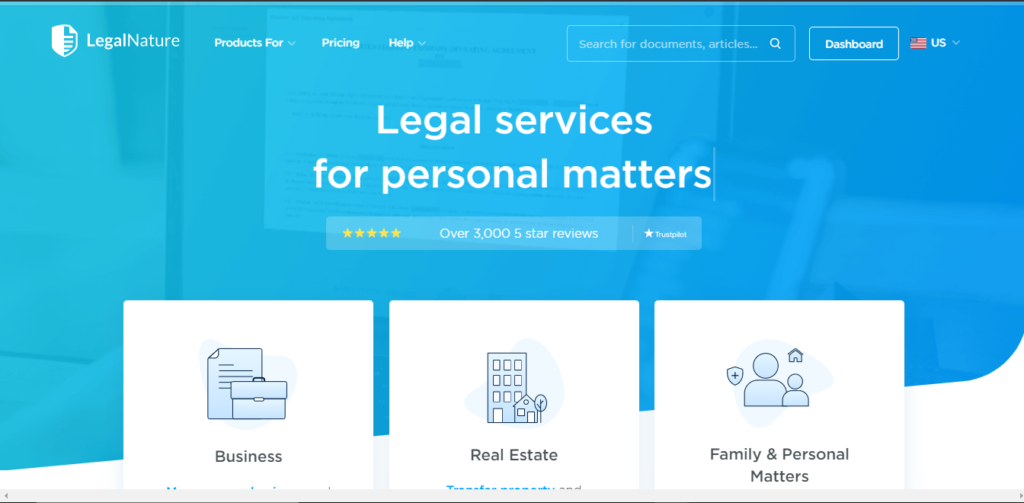Disclosure: This content is reader-supported, which means if you click on some of our links that we may earn a commission.
A non-compete agreement isn’t just for large corporations and enterprises. Every business, including startups, has interests worth protecting. Thus, a non-compete contract can be an effective tool for safeguarding your business interests. In this guide, we will cover the importance of these agreements, where to get your hands on a non-compete agreement template for free, and provide crucial tips for crafting an ironclad non-compete agreement.
Why Non-Compete Agreements Are So Important
Non-compete agreements (NCA) are relatively commonplace in the U.S. workforce. More so than in most other countries. These agreements are particularly common in executive positions and technical fields. According to a Treasury report, 35% of all workers have signed a non-compete agreement at some point in their careers.
Despite resistance to NCAs from some quarters, these agreements are beneficial and sometimes even indispensable to employers and employees alike.
The first crucial benefit of non-compete agreements is protecting a company’s trade secrets. Many would argue that this is the basis of these agreements. For example, an organization may have specific business practices or technical information that gives it an edge over the competition. It is in the interest of such an organization that employees can’t share these details with direct competitors. Additionally, non-compete agreements make it difficult for employees to venture out independently and benefit from the organization’s hard-won secrets, methods, and best practices.
Similarly, NCAs can promote the free flow of information within an organization. A business owner may be hesitant about sharing sensitive information and trade secrets with high-level employees. In this case, there is no recourse should the employee decide to move to a rival firm or start their own practice.
With a non-compete agreement in place, the employer can share crucial information without reservation. This free flow of information benefits both parties, as workers are more productive, and the organization is more profitable. Furthermore, the employer is assured that their business interests are protected under the law.
Non-compete agreements also help resolve reservations about employee training. Justifiably, some employers may be reluctant about investing in employee training to improve their general skills. The rationale may be that the training makes the employee an attractive prospect for competitors.
Rather than issue pay cuts to compensate for the cost of the training, an NCA can help bridge the gap. Employers are assured that they will retain the staff after training, at least for a certain period. The employees also enjoy the full benefits of employee training, including improved productivity, increased engagement, and higher self-reported job satisfaction. And employees enjoy more training than they would receive otherwise.
Finally, a non-compete agreement can help to match employers with potential long-term employees. These contracts often include restrictions on future employment. Prospective employees who don’t plan to stay with the organization for long are less likely to accept a position that requires signing an NCA.
Quick Tips to Improve Your Company’s Non-Compete Agreement Today

Creating a non-compete agreement without any legal background can be a headache. However, Legal Nature, an online legal documents and legal services provider, offers a handy template. Its legal documents start at $34.95 for a single document. Alternatively, you can get unlimited access to all of the company’s legal documents for an annual fee of $84 per year.

For our purposes, the non-compete agreement template is entirely free. It will help you craft a professional and legal contract in no time.
The template is also highly customized for your specific use cases. For example, you start by choosing your state to ensure that you have the proper document based on your state’s laws. Then, the template covers all the crucial areas you’d need to include in a non-compete agreement, including:
- Promisor and promisee’s details
- Competing with the promisee
- Governing law and arbitration agreement
- Solicitation of promisee’s employees
- Solicitation of promisee’s customers
- Additional terms and conditions
Below are a few quick tips to help you create your first enforceable non-compete agreement.
Check If a Non-Compete Agreement is Enforceable in Your State
Reasonable non-compete agreements are perfectly legal in most states. However, some states have all but banned non-compete agreements. For example, California and Texas generally do not enforce these agreements except in very few situations.
Other states such as Colorado, Idaho, Massachusetts, and Utah have also amended their non-compete laws. It is worth staying up-to-date with the laws and regulations governing non-compete agreements in your state. This legal area tends to change rapidly and often.
Determine Who Needs to Sign an NCA
Not all employees need to sign a non-compete agreement. For example, employees who do not deal directly with clients or have access to trade secrets don’t need to sign the contract. In such cases, the agreement could be seen as a ploy to stop an employee from getting another job after leaving your organization. The courts would be quick to void the contract under such circumstances.
You will first need to determine your protectable interests. These interests will then help you identify which employees should have a non-compete agreement. Examples of protectable interests may include trade secrets, client relationships, goodwill, confidential information, formulas, marketing and pricing strategies, processes, and new product development plans.
Whatever the case, you need to have specific and legitimate interests that you are trying to protect with an NCA. This foundation will help you create an iron-clad agreement. For example, it might be in your interests to protect the goodwill you have developed with your customers. An employee who deals directly with customers should sign an NCA. This way, they cannot steal your clients after they leave.
Conversely, your employee’s skills and abilities are only considered legitimate interests under specific circumstances. For example, there are instances where the employee gains confidential knowledge they could transfer to a new company. In this case, an NCA may be necessary. However, you cannot use a non-compete agreement to stop employees from jumping ship to competitors because you benefit from their skillset.
Some employees typically required to sign non-compete agreements include engineers, executives, sales representatives, and R&D personnel.
Settle the Scope of the Non-Compete Agreement
It may not be enough to state that employees cannot work for your competition. Instead, you might need to determine precisely the work or activities they cannot perform. This clarity helps employees understand how to stick to the contract terms after they leave your organization.
Similarly, a clearly defined scope helps to prevent ambiguities. Courts are known to ‘blue-pencil’ ambiguous NCAs, meaning that the court can eliminate provisions it deems overboard, unreasonable, unlawful, vague, or otherwise defective.
Establish Reasonable Time and Geographic Limitations
Another element of an enforceable non-compete agreement is its limitations. Specifically, limitations refer to the time and geographic constraints of the contract. There is no hard rule about what is reasonable in terms of length of time and geographic scope.
For example, a nationwide restriction on competition would be considered unreasonable if your business operates in a specific region. But, the opposite would be true if you have a national presence. Reasonable time limitations can be equally tricky to determine. However, more than two years is challenging to enforce except in rare situations.
It’s also worth noting that time and geographic limitations are often considered together. So, for example, it’s easier to uphold a long-term time limitation within a local area than with a nationwide restriction.
Pay Consideration
Ideally, non-compete agreements should be mutually beneficial. Therefore, the employee needs to get something back to compensate for the restrictions of the contract. This payment is called “consideration.” This consideration may be monetary on non-monetary.
Paying consideration is mandatory in many states. Even where it is not, courts consider it an essential element when deciding whether to enforce a non-compete agreement. When hiring a new employee, the position you are offering may be a form of consideration. In this case, you are offering the employee a job in exchange for signing the contract.
Additionally, it is necessary to pay consideration to existing employees when they need to sign an NCA. This payment may be in the form of a salary increment, shares, or a promotion. It helps if the employee thinks that the consideration is fair. This makes it unlikely that they will dispute the agreement in the future.
It’s worth noting that the promise of continued employment is typically not considered a type of consideration. Therefore, you will need to provide additional compensation or something of value in exchange for an existing employee’s promise not to compete with your business.
Long-Term Strategies for Creating an Enforceable Non-Compete Agreement
There are things that you can do in the short term to create an enforceable non-compete agreement. But, some strategies will take a longer time to implement.
Consider External Partners
Having your direct employees sign a non-compete agreement is often a positive move. But, such an agreement may be voided if it is not consistent across the board. Consider also your external partners, including contractors and vendors. They may have access to the same privileged information as your employees.
You must hold external partners to the same standard as your employees. It may be hard to argue for the validity of your business interests covered in employee contracts if all parties with access to privileged information don’t have to sign an agreement.
Create Custom Non-Compete Agreements
In the interim, a standard non-compete agreement is sufficient. But, it is necessary to create customized contracts for each position. This way, the agreement covers the specific business interests pertaining to each position.
While at it, ensure that the agreement is tailored to your specific industry. While there are many templates on the internet, a one-size-fits-all approach doesn’t work well. For example, what is considered the reasonable time or geographic restrictions vary across industries?
Additionally, what your state may consider a reasonable agreement may not be so in another state. For this reason, refer to your state’s laws and regulations to customize your non-compete agreement even further.
Include Choice-Of-Law Clause
As we’ve already noted, non-compete laws vary between states. States like California tend to favor employee mobility and are reluctant to enforce non-compete agreements. Others are more inclined to implement these contracts. This reality often makes things complicated for businesses operating in multiple states.
The choice-of-law clause covers which jurisdiction’s law governs the agreement. The clause may also state the venue for any legal action in the event of a breach of contract. Inserting this clause is far from an iron-clad strategy. But, some clarity on this issue is better than none. Choice-of-law clauses can also be complicated. Therefore, it is worth getting professional legal advice regarding this issue.
Update Your Non-Compete Agreements Regularly
A lot of things change in the course of doing business. Changes like essential employees, key customers, and updated information and techniques are inevitable. Additionally, laws and regulations governing non-compete agreements in your state can change.
It is necessary to update your agreements any time there is a significant internal or external change. The revised agreements protect your current business interests, even as they change and evolve.
Conduct Exit Interviews With Departing Employees
It is always worth conducting an exit interview with your departing employees. Specifically, go over their contractual and legal obligations. It might be the case that the departing employee is not exactly clear on their obligations. However, even when this isn’t the case, it is worth reiterating the importance of sticking to the agreement and also finding out more about their experience working for your business.
Consider handing the ex-employee a copy of the non-compete agreement. Also, be sure to include your non-compete agreement in your HR software’s employee documentation. Next, go over any questions and express your expectations regarding the departing employee’s conduct henceforth. Finally, provide the ex-employee with an acknowledgment form to sign. This form should indicate that the employee hasn’t retained any confidential information.
Determine a Course of Action in Case of Violation
For many employers, a non-compete agreement is just another business document. However, some employees may be willing to breach the contract despite the consequences. Having a laid-out plan in case of such a violation will help you to react quickly and methodically.
It is also worth consulting with a lawyer about potential actions. Possible measures may include sending a cease and desist letter. It may also be worth considering which violations may lead you to proceed directly to litigation.
Protect Your Business Interests
Finally, holding employees to a non-compete agreement isn’t enough. You’ll also need to take extra measures to protect your business interests. But, again, it is hard to argue for your business interests in court if you didn’t take enough steps to protect them in the first place.
Take the example of confidential information. Marking documents as confidential, restricting access to sensitive information, and password protections are all great measures. These measures put the onus on the employee to uphold their contract not to disclose sensitive information. In case of a breach of agreement, you’ll be able to prove that the employee directly destroyed your business interests.
Next Steps
The next step is to have the employee sign the non-compete agreement. Give them sufficient time to go through the document thoroughly before signing. Prudent employees might also want their lawyer to take a look at the document before they sign. If your intentions are pure and everything is above board, this shouldn’t be a problem.
In some cases, an employee may want to negotiate the terms of the agreement. This case is especially true regarding consideration or what you’re offering in return for signing the contract. Leave some wiggle room for reasonable demands. After all, the non-compete agreement should be mutually beneficial.
It is not necessary to get the document notarized. There is no common law or statutory requirement for notarization. However, it is still a good idea to have the copy notarized. This process adds an extra formal element that may make it more likely to stick.
Finally, the non-compete agreement takes effect as soon as the employer and employee sign the document. Therefore, you don’t need a witness for the document to be legally binding. But, again, it is a good idea to have a witness present as a formality.














